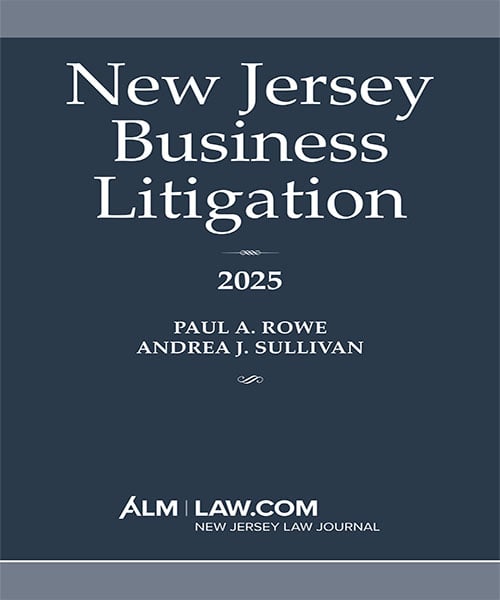0 results for '*'

Thomson Elite Pushes Practice Management Product on .NET
Thomson Elite calls its new large-firm accounting and practice management software, Elite 3E, the first system of its kind to run on the Microsoft .NET platform, which can provide secure data hosting and enable customization of software modules -- allowing, theoretically, for optimal collaboration and workflow oversight. The system is meant to streamline business operations and cut costs. But some law firm sources question how easy and cost-effective it will be for existing Elite users to upgrade to 3E.
Lawyer Discipline: High court disbars two, suspends one
The Supreme Court of Georgia on Monday issued the following decisions disciplining members of the State Bar:In the Supreme Court of GeorgiaDecided: July 7, 2008 S08Y0776. IN THE MATTER OF DANIEL J. LEVY.S08Y0777. IN THE MATTER OF DANIEL J. LEVY.S08Y0778. IN THE MATTER OF DANIEL J. LEVY.S08Y0979. IN THE MATTER OF DANIEL J. LEVY.
High Court To Take Up Clerk's Challenge To Sealing ARD Records
The state Supreme Court has agreed to hear the Berks County court clerk's challenge to an administrative rule requiring sealing of case records upon a defendant's successful completion of a diversion program.
Is Your Company Tweeting Its Way Into Trouble?
With the growth of social media for marketing and business purposes, managing discovery risk is critical, note Judah Lifschitz and Laura Fraher of Shapiro, Lifschitz & Schram.
2d Circuit backs work product tape subpoena
A subject of a grand jury investigation who, on advice of counsel, taped phone calls with a fellow broker to help protect himself cannot shield the recordings from prosecutors following a 2nd Circuit ruling. In a decision unsealed this week, the circuit held that, even though the tapes were "fact work product," the government had shown that there was a "substantial need for the recordings and that the information could not be obtained through other means."View more book results for the query "*"


Court of Chancery Issues New Rule to Govern Confidential Filings
On Monday, the Delaware Court of Chancery issued a new rule governing confidential filings with the court - Court of Chancery Rule 5.1 - to replace the longstanding Rule 5(g). Rule 5.1 will become effective January 1, 2013. This overhaul of Rule 5(g) reflects the court's historical concern with balancing the public's right of access to judicial proceedings with parties' interests in maintaining the confidentiality of certain information. (See the memorandum from the Delaware Court of Chancery, "Protecting Public Access to the Courts: Chancery Rule 5.1.") Rule 5.1 emphasizes at the outset that "proceedings in a civil action are a matter of public record," and, subject to the limitations outlined in the rule, all filings in the Court of Chancery "shall be available for public access." Notably, Rule 5.1 does not affect the practice of entering into confidentiality stipulations to govern discovery, and is unlikely to affect the designation of confidential and highly confidential material. Instead, Rule 5.1 focuses on confidential information that parties file with the court. Below is a description of the key provisions of Rule 5.1, including where the new rule deviates from the prior Rule 5(g).
Judge Affirms Affirmative Action In Michigan Admissions Policy
In a case that may be headed for the U.S. Supreme Court, a federal judge upheld the University of Michigan's use of affirmative action in its admissions policy. U.S. District Judge Patrick Duggan said the university presented "solid evidence regarding the educational benefits that flow from a racially and ethnically diverse student body." The case is being closely watched by schools across the country.
In Puerto Rico, bracing for the blow
The commonwealth is the largest recipient of U.S. support, but nearly half its residents qualify for legal assistance.With the help of its lawyers at Fish & Richardson, speaker manufacturer Bose convinced a Federal Circuit appellate panel to reverse a finding of fraud by the Trademark Trial and Appeal Board. The Federal Circuit's decision tightens the requirements for finding fraud in trademark applications.

Trending Stories
- 1US DOJ Threatens to Prosecute Local Officials Who Don't Aid Immigration Enforcement
- 2Kirkland Is Entering a New Market. Will Its Rates Get a Warm Welcome?
- 3African Law Firm Investigated Over ‘AI-Generated’ Case References
- 4Gen AI and Associate Legal Writing: Davis Wright Tremaine's New Training Model
- 5Departing Attorneys Sue Their Former Law Firm
Featured Firms
Law Offices of Gary Martin Hays & Associates, P.C.
(470) 294-1674
Law Offices of Mark E. Salomone
(857) 444-6468
Smith & Hassler
(713) 739-1250
More from ALM
Resources

Aligning Client Needs with Lawyer Growth and Profitability
Brought to you by BigHand
Download Now

Technology to Make E-Discovery Smarter, Not Harder
Brought to you by Nuix
Download Now

Does Generative AI Have the Power to Transform Legal Services?
Brought to you by HaystackID
Download Now

How This Personal Injury Firm Reduced Client Intake Time by 80%
Brought to you by PracticePanther
Download Now



